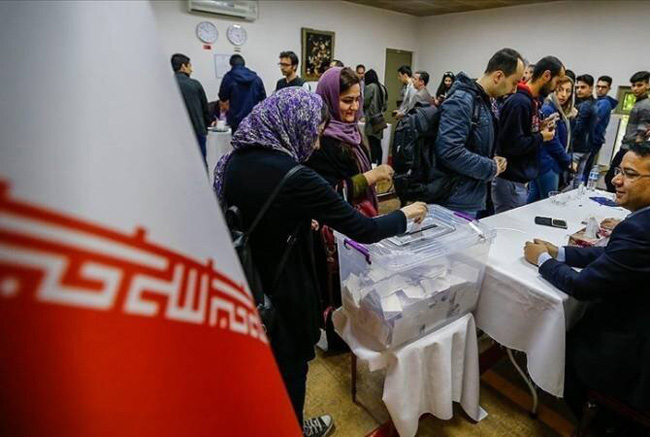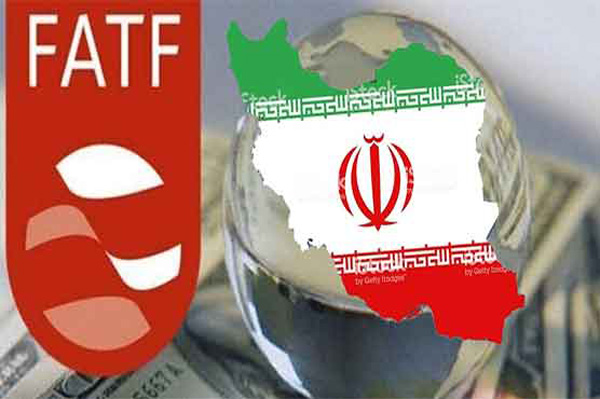Tehran, Paris … News Time
The ruling class in Iran’s parliamentary elections has been heavy. According to news agencies, a large number of pro-government citizens turned up at polling stations in Friday’s polls. Prior to the election, 7,000 candidates were disqualified from participating in the elections, the majority of who were enlightened. They included 90 members of parliament who wanted to run in the post-2016 elections. According to Iranian media, the final results are likely to be announced today after the counting of votes. 55,000 polling stations were set up across the country in connection with the elections. According to Iranian media, 7,150 candidates were allowed for 290 seats in parliament, while 5.7 million people were eligible to vote. Iranian religious leader Khamenei said elections would defeat anti-Iran conspiracies.
Earlier, the Iranian leadership and the state media appealed to citizens to participate in elections and vote according to their religious obligations. Soon after the polling began, Khamenei voted at the polling booth at a mosque near his office in Tehran. He said that everyone who believes in the interests of the country should participate in the election.
On the other hand, the United States blacklisted 5 Iranian officials and imposed economic sanctions on them. Ahmad Jannati, head of the Guardian Council of Iran, Mohammed Yazdi (Mohammad Yazdi), expert council member Ali Kadkhodaei, Ali Kadkhodaei, Siamak Rahpeyk and Hasan Sadeghi (Mohammad Hasan Sadeghi). Moghadam) will be subject to sanctions.
The voting process for the new parliament in Iran is complete, which has a keen eye on the turnout. Turnout ratio was below normal. Voting took place in 208 constituencies for the 290-seat chamber, which continued until 6pm. Earlier this week, Ayatollah Ali Khamenei had said that by casting more votes, the plans and plans of US and Israeli supporters against Iran would fail. He said the enemies want to see what the consequences of maximum US pressure are. He cited Washington’s US sanctions and pressures, saying Iran’s ability to sell oil overseas has been strangled and its economy has been forced to recession. “Our enemies will be more disappointed than in the past,” said Hassan Rouhani.
Keep in mind that the aforementioned elections are being held at a time when Iran is facing severe economic hardship. Tehran faces global economic sanctions after US withdraw from nuclear deal as a result, prices of basic goods increased, inflation and unemployment increased and the value of the local currency declined. In addition, several people were killed in violent protests following the rise in petrol prices in November last year. It should be noted that in Iran the parliament only discusses the annual budget and the possible impeachment of the ministers. The power in Iran is ultimately with Ayatollah Khamenei, who has the final say on important policy. Of the population of Iran’s 8 million, 580 million Iranians were eligible to vote, and only people over the age of 18 can vote. Turnout in the previous parliamentary elections was more than 50%, compared to about 62% in 2016. Preliminary election results are expected to be announced today.
On the other hand, the Financial Action Task Force (FATF) blacklisted Iran on a ‘failure’ to comply with the principles of financing anti-global terrorism. According to foreign news agency AFP, the FATF, based in Paris, warned Tehran that it should obey anti-terror financing rules, before taking the aforementioned decision. The FATF said countries should take counter-measures freely.
It said further transactions with Iran would be examined, financing organizations in Iran will have a rigorous external audit and banks and businesses working with Iran will also be pressured. Foreign businesses say Iran’s compliance with FATF rules is important if Tehran wants to attract investors. He said that especially when the United States canceled the nuclear deal with Iran in 2015 and banned Tehran. It should be noted that the US has been pushing for a “maximum pressure” policy against Iran. Washington claims that Iran’s nuclear program, missile program and Iranian activities in the Middle East should be discussed with Iran.





